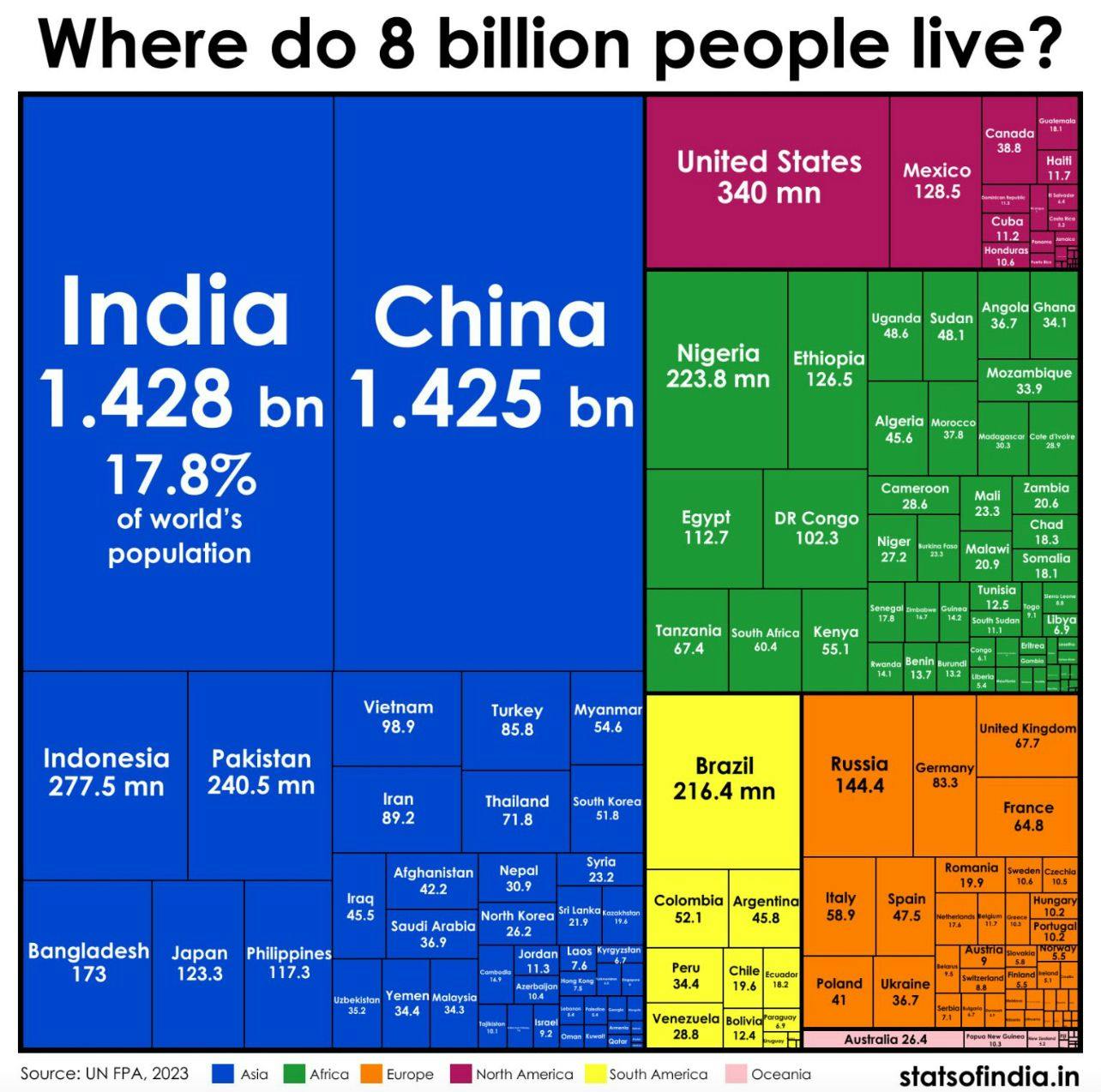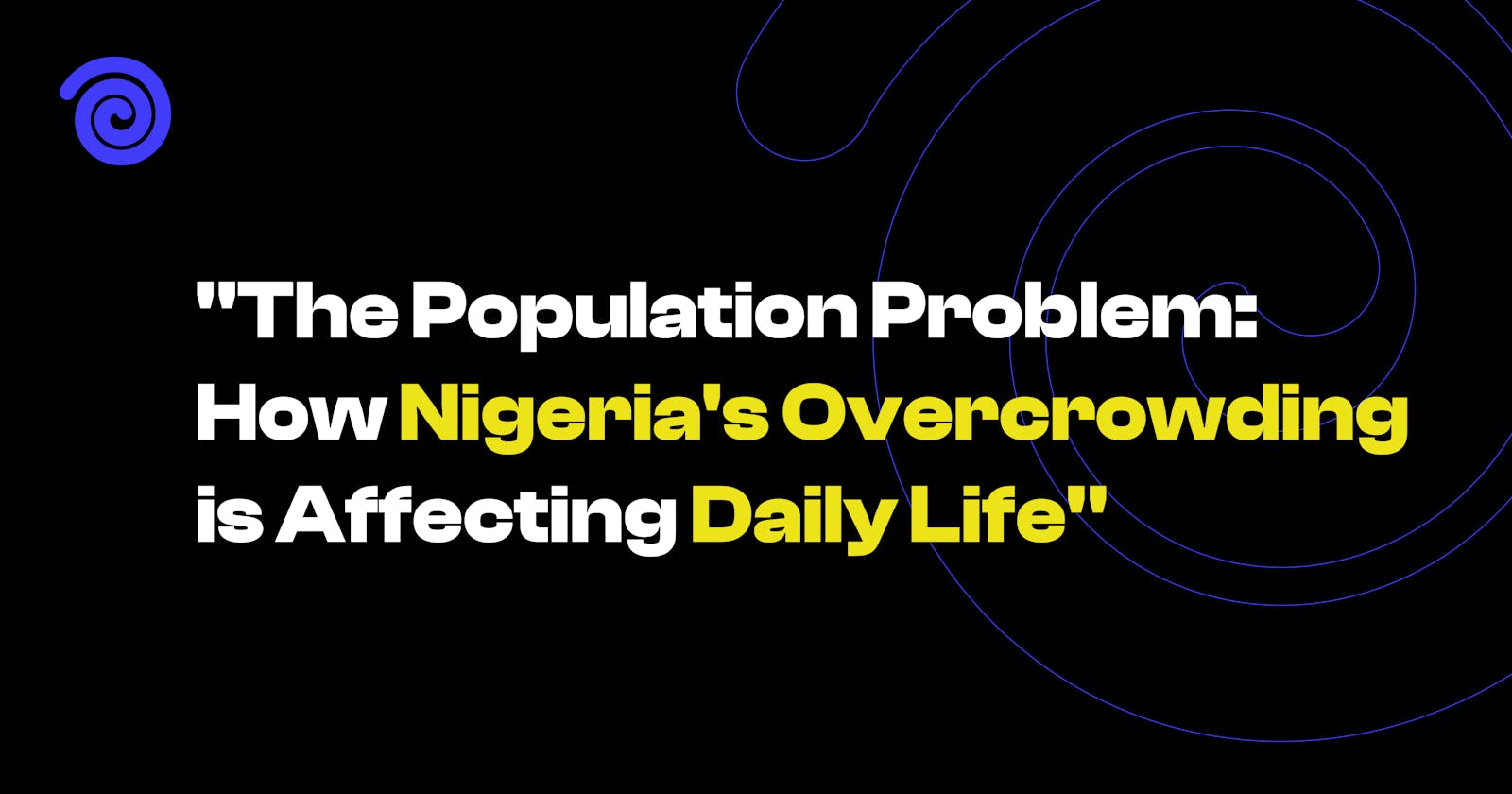Introduction:
Ogochukwu has always found life in a big city to be fascinating. She was born and raised in a tiny hamlet in Imo State, Nigeria, and had always wanted to live in Lagos, the biggest city. She was eager to see everything the city had to offer when she finally had the chance to relocate there.
But as Ogochukwu got used to life in Lagos, she soon discovered that residing in such a crowded metropolis has numerous difficulties. The air was dirty, the traffic was always terrible, and locating safe and inexpensive accommodation took work.

Ogochukwu couldn’t help but contrast her experience with what she had learned about American culture from films and television programs. She had always seen America as a place of opportunity where people might live comfortably and pursue their goals. However, when she studied more about the United States, she realized it suffered many of the same issues with the population as Nigeria.
In other ways, the United States’ large population presented its challenges. Nigeria has more than 220 million people, while the United States has more than 330 million. However, the US faced difficulties with concerns, including cheap housing, air pollution, and traffic congestion.
No matter where she resided, Ogochukwu knew that population was a severe problem that impacted every element of life. She also understood that the issue needed to be acknowledged honestly and openly to achieve progress.
Real-Life Problem:
With a population of over 220 million, Nigeria is one of the most populated nations in the world. Despite this, Nigerians rarely talk about population issues. Many Nigerians are more concerned with their daily problems, such as obtaining employment and putting food on the table.

But Nigeria’s population is a significant problem that impacts every area of daily life. The nation’s infrastructure, resources, and environment are under stress due to one of the world’s most excellent rates of population increase.
One of Nigeria’s population expansion's most prominent and annoying effects is traffic congestion. I couldn’t remain in Lagos because of the legendary traffic bottlenecks in the nation’s largest metropolis, which can make commuting time take hours. Because of the dire circumstances, some Lagosians have spent the night in their cars to avoid the morning gridlock.
Another problem strongly related to Nigeria’s population expansion is air pollution. Air pollution has grown along with the number of vehicles on the road. In addition to harming people’s health, this pollution also impacts climate change.
Another issue strongly related to population expansion is access to affordable housing in Nigeria.
The demand for housing has increased as more people relocate to metropolitan regions in pursuit of employment, resulting in expensive rents and cramped living conditions.
The difficulties Nigeria experiences due to its population increase can’t be compared to those that America faces in many aspects. For instance, The Land Mass ratio between Nigeria and the United States is 10:1, with the United having the higher number. Still, the population ratio of the United States and Nigeria is 17:11, with the US having the higher number, but note if having a land mass of 10:1, isn’t it fair to have a population of 10:1, but we don’t care. Despite having a population of just over 340 million, the United States faces problems, including traffic jams, air pollution, and a lack of affordable housing, so are we not supposed to be worried?
The United States, however, is different in that it is more willing to talk about population as a problem. Family planning and the effects of population expansion on the environment are topics that Americans tend to discuss more frequently. These discussions are less prevalent in Nigeria.
Nigeria has to start discussing the issues around population increase more openly if it wants to address the problems. We can begin by recognizing the problem, exploring remedies, and altering the laws and customs that promote population increase.
With a 9.834 million km2 land mass and numerous high-rise structures, the nation and its citizens maintain rules that control population and quality housing.
Nigeria, a nation with a land mass of 923,768 km2 and a population of 220 million, continues to act stupid despite having a subpar housing system, infrastructure, roads, and regulations.
The "Population problem" shouldn’t be disregarded because it affects the fundamentals of living a good life. Every element of life is impacted by population, including housing, quality of life, good health, social being, and growth.
These are concerns that we ought to treat seriously.

